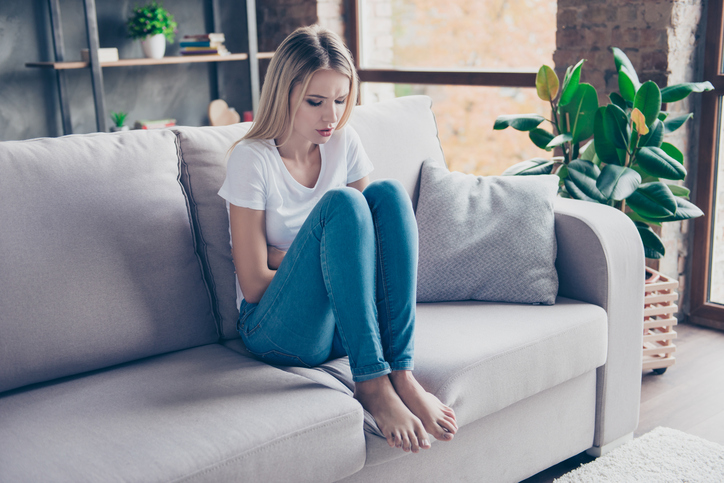- solen.sk - expert article on recurrent urinary tract infections in pdf
Urinary tract inflammation in summer: more common in women. What to do for inflammation with medication?

Summer activities, late-night pool parties or a not entirely sensible lifestyle can cause considerable health problems. In women, it is often cystitis, an inflammation of the urinary tract or bladder.
Article content
Many people go through this problem at least once in their lifetime, as it is the second most common infection after respiratory tract infections.
This bacterial infection is particularly common in women, because of their different anatomical dimensions. Their urethra is shorter. The Escherichia coli bacteria, which is naturally found in the intestines, is close to the urinary tract, where it causes an infection.
It causes 70 to 80 percent of the inflammation.
Chlamydia can also cause inflammation.
You can also read more about such infections in children in the magazine Summer flu and colds in children. Do you know how to avoid them?
Read also the article.
How to avoid urinary tract infections
Summer is the season of fun and various water activities. Prevention and caution are often forgotten. This brings with it the ideal conditions for the development of health problems.
Wet, wet swimsuits and chlorinated water
Staying in the water for long periods of time or leaving wet swimwear on weakens the defences of the urinary tract. In addition, a wet and humid environment is ideal for the growth of bacteria.

Drinking regime
Adequate fluid intake ensures more frequent urination, during which bacteria are better flushed out of the body. If the bladder is not emptied for longer, bacteria have plenty of time to multiply.
E coli bacteria can double their numbers in 20 minutes.
The more bacteria, the more severe the course of the disease and the more unpleasant the symptoms. Therefore, it is necessary to drink as if for life. Urological tea and pure water are optimal.
Interesting information can also be found in the article.
Sex and hygiene
Before and after sexual intercourse, urinate. In this way, the bacteria are partially flushed out of the body, flushed away. This prevents their progress to the area around the urethra during intimate moments.
Hygiene is also important, but avoid perfumed soaps.
Read also.
Clothes
Prefer cotton and not too tight underwear. Wearing tango panties is also inappropriate.
Draughts, sitting on wet or cold ground
Despite the summer and high temperatures, do not underestimate the risk of sitting on the ground, in the cold or wet grass.
What is the course of urinary tract inflammation and its symptoms?
Symptoms are sudden onset of pain in the lower abdomen with urge to urinate. During defecation, the pain increases and passing urine causes burning or cutting.
The most typical symptom is the feeling of inadequate defecation. This is actually a defence mechanism in which the body tries to get rid of bacteria and flush them out by increased urination. The result is frequent urges to urinate even though only a small amount of urine is voided.

The urine is dark, cloudy and often with blood.
Symptoms depend on the amount of bacteria in the bladder or urinary tract. The greater the amount, the more unpleasant the course and symptoms.
Treatment of bladder and urinary tract infections
With these infections, there is a risk that the inflammation will reach the higher parts of the urinary tract, i.e. the kidneys. Therefore, it is important not to underestimate the treatment and to keep the prescribed medication alive. This will prevent the recurrence of the problem.
Liquids, herbal and urological teas
Sufficient fluid intake is of great importance. Although urination is painful, bacteria should literally be flushed away. Urine should be clear and stagnate as little as possible in the urinary tract. Pure water and urological tea are ideal.
Often you cannot do without antibiotics, which only your doctor can prescribe.
Cranberries
The positive effect of cranberries is that it helps flush bacteria out of the body, making it harder for them to stick to the lining of the urinary tract. However, their anti-inflammatory effects have not been scientifically confirmed.

Analgesics
Painkillers can also relieve the burning pain. A warm compress on the lower abdomen can also help.
The following table shows foods and drinks that can harm or help with urinary tract inflammation
| What will help |
|
| What to avoid |
|
Avoid eating foods that acidify the urine, such as meat or milk.
Who is at risk of frequent urinary tract infections?
Some people are more susceptible to such inflammation. For them, the inflammation may be frequent, recurrent or more painful and severe. These are in particular:
- Women with weakened immunity
- pregnant women
- diabetics
- people with anatomical abnormalities in the urinary tract
- patients with a urinary catheter in place
- individuals with urinary stones
- incontinent patients, patients with urinary outflow disorders
Interesting information: all summer problems in one place
Cesta baktérie E. coli do močového ústrojenstva
Interesting resources










